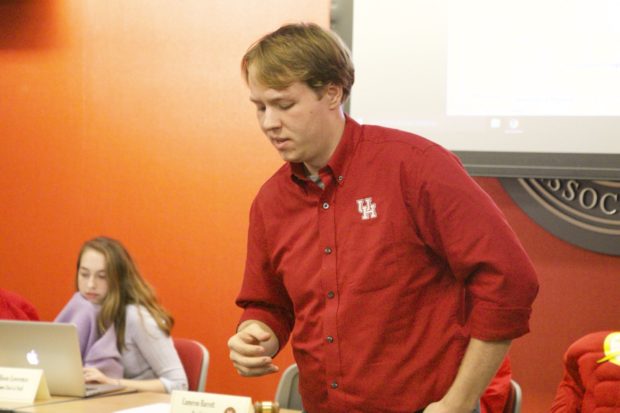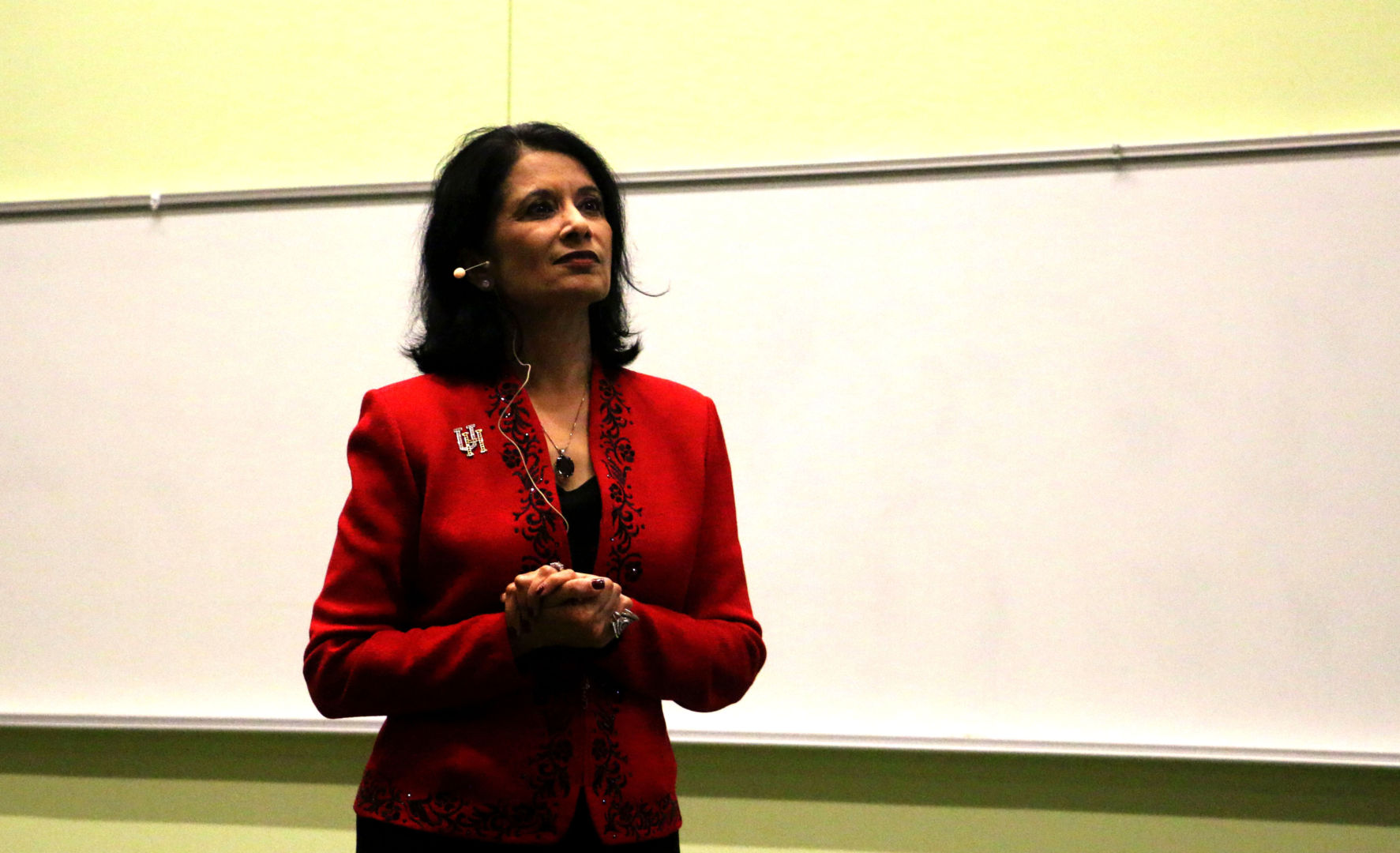Posted on 06 November 2018.
Update 12:00 p.m.: Republican Sen. Ted Cruz continues to lead the race for Senator in the state of Texas with 51 percent, while Democratic Rep. Beto O’Rourke trails with 48 percent. Precinct reporting is currently at 91.81 percent, meaning there is likely to be little change in these results.
For statewide appointments, the Republican candidate is in the lead for every position.
Republican Rep. Sid Miller leads the race for Agriculture Commissioner with 52 percent, while Democratic Rep. Kim Olson trails with 48 percent.
The race for Land Commissioner is led by Republican Rep. George P. Bush with 54 percent. Democratic Rep. Miguel Suazo has 43 percent.
Republican Rep. Ken Paxton leads the race for Attorney General with 51 percent, while Democratic Rep. Justin Nelson lags behind with 47 percent.
The race for Comptroller of Public Accounts is led by Republican Rep. Glenn Hegar, who held the position during the last term of service. Democratic Rep. Joi Chevalier has 43 percent.
Republican Rep. Greg Abbott leads the race for Governor with 56 percent, while Lupe Valdez trails with 42 percent.
In the race for Lieutenant Governor, Republican Rep. Dan Patrick has maintained a lead with 52 percent. Democratic Rep. Mike Collier lags behind with 46 percent.
Republican Rep. Christi Craddick leads the race for Railroad Commissioner with 54 percent, while Democratic Rep Roman McAllen follows behind with 44 percent.
In the Houston region, there is a mix of Democratic and Republican front runners.
Republican Rep. Ed Emmett and Democratic Rep. Lina Hidalgo are still tied for County Judge at 49 percent.
In the race for County Clerk, Republican Rep. Stan Stanert has 43 percent of votes, while Democratic Rep. Diane Trautman has 54 percent.
Democratic Rep. Marilyn Burgess leads the race for District Clerk with 55 percent of votes, while Republican Rep. Chris Daniel has 45 percent.
There is an overwhelming majority in favor of both Proposition A and Proposition B. Prop A has a 74 percent vote in favor, while Prop B has a 59 percent vote in favor.
More to follow later today.
Update 11:30 p.m.: With 83 percent of precincts reporting, Democratic Rep. Beto O’Rourke is currently trailing behind Republican Sen. Ted Cruz in the race for Senator. O’Rourke has 48.1 percent of votes, while Cruz has 51.2 percent.
Republican Rep. Ted Cruz is projected to win.
With 82 percent of precincts reporting, Republican Rep. Greg Abbott is leading the race for Governor with 56 percent, while Democratic Rep. Lupe Valdez lags behind with 42.3 percent.
Republican Rep. Greg Abbott is projected to win.
In Harris County, Democratic Rep. Mike Collier continues to lead the race for Lieutenant Governor against Republican Rep. Dan Patrick. Collier has stayed ahead with 55.75 percent, while Patrick rests at 42.57 percent.
The race for Attorney General is still led by Democratic Rep. Justin Nelson with 56.56 percent, while Republican Rep. Ken Paxton trails at 41.47 percent.
Update 11:00 p.m.: There have been no significant changes in any of the races previously mentioned.
Update 10:45 p.m.: The current vote on Proposition A still shows an overwhelming majority in favor of the amendment to the city charter. There is a 74.03 percent vote in favor of the motion.
Proposition B has maintained a majority in favor of the amendment to the city charter. The current vote features a 59.15 percent for the change.
Turning to the candidates, Democratic Rep. Lupe Valdez continues to edge ahead of Republican Rep. Greg Abbott in the race for Texas Governor, with 51.63 percent of the votes.
Republican Sen. Ted Cruz continues to lag behind Democratic Rep. Beto O’Rourke in the race for Senator. Beto O’Rourke leads with 57.44 percent, while Cruz has 41.85 percent.
Update 10:30 p.m.: Democratic Rep. Beto O’Rourke continues to lead the race against Republican Sen. Ted Cruz in Harris County with 57.24 percent to Cruz’s 42.09 percent.
Democratic Rep. Lupe Valdez has maintained her lead in the race for Texas Governor against Greg Abbott. Valdez has garnered 51.52 percent of votes, while Abbott has 47.02 percent.
The race for Lieutenant Governor is still led by Mike Collier in Harris County, with 55.50 percent of the votes. Dan Patrick trails behind with 42.87 percent.
Democratic Rep. Justin Nelson continues to keep a lead in the race for Attorney General against Republican Rep. Ken Paxton. Nelson comes in at 56.28 percent, while Paxton lags behind with 41.82 percent.
The race for the Comptroller of Public Accounts position is still led by Democratic Rep. Joi Chevalier with 52.08 percent, while Republican Rep. Glenn Hegar has 45.25 percent. The duty of the Comptroller of Public Accounts is to collect all tax revenue due to the state of Texas. Hegar has held the position for the last four years.
Update 10:15 p.m.: Of the 1,012 precincts that will report for the decision for United States Senator, 465 precincts have reported. This outcome has reported Democratic Rep. in the lead so far with 57.12 percent. Republican Sen. Ted Cruz still lags behind with 42.24 percent in Harris County.
The Democratic party still leads the way in straight-party votes with 54.41 percent, while the Republican party has garnered 44.99 percent.
Democratic Rep. Lupe Valdez continues to lead the race for Governor against Republican Rep. Greg Abbott. Republican Rep. Dan Patrick continues to trail behind Democratic Rep. Mike Collier in the race for Lieutenant Governor.
The race for Attorney General is still led by Democratic Rep. Justin Nelson with 56.28 percent, while Republican Rep. Ken Paxton has 41.82 percent.
Democratic Rep. Marilyn Burgess continues to lead the race for District Clerk against Republican Rep. Chris Daniels. Democratic Rep. Diane Trautman has maintained her lead against Republican Rep. Stan Stannart.
Update 10:00 p.m.: The race for Governor remains tight, with Republican Rep. Greg Abbott close behind Democratic Rep. Lupe Valdez, trailing with 47.09 percent to her 51.48 percent. If Valdez maintains this majority, she will replace Abbott as Texas governor.
Democratic Rep. Marilyn Burgess currently leads the race for District Clerk with 54.23 percent, while Republican Rep. Chris Daniels has 45.77 percent.
The race for County Clerk is led by Democratic Rep. Diane Trautman with 53.88 percent. Republican Rep. Stan Stannart has 43.73, while Libertarian Rep. Abel Chirino Gomez trails far behind with 2.39 percent.
Democratic Rep. Dylan Osborne is currently leading the race for County Treasurer with 53.43 percent, while Rep. Orlando Sanchez lags behind with 46.57 percent.
Update 9:45 p.m.: The current vote for Proposition A shows an overwhelming majority, with 73.96 percent in favor of this amendment to the city charter. If passed, Prop A would establish a fund to be used to cover the cost of flood damages and street projects.
Proposition B currently carries a slight majority in favor of the charter amendment, with 57.92 percent of voters for the change. If passed, Prop B would give provide equal pay for Houston fire fighters and police officers.
Update 9:30 p.m.: Democratic Rep. Beto O’Rourke continues to lead the race for United States Senator, with 57.02 percent, while Republican Sen. Ted Cruz lags with 42.41 perent.
Democratic Rep. Lupe Valdez continues to lead the race for Governor, with 51.61 percent, while Republican Rep. Greg Abbott stays close behind 47.05 percent.
The race for Lieutenant Governor is still dominated by Democratic Rep. Mike Collier, with 55.52 percent. Republican Rep. Dan Patrick trails behind with 43 percent.
Democratic Rep. Justin Nelson has maintained his lead in the race for Attorney General with 56.24 percent, while Republican Rep. Ken Paxton has garnered 42.01 percent.
Republican Rep. Ed Emmett and Democratic Rep. Lina Hidalgo are neck and neck in the race for County Judge. Emmett leads with 49.43 percent, while Hidalgo barely trails behind with 48.71 percent.
Update 9:15 p.m.: There have been only minor changes in the races for Senator, Lieutenant Governor and Attorney General.
Democratic Rep. Joi Chevalier currently leads the race for the Comptroller of Public Accounts with 52.12 percent, while Republican Rep. Glenn Hegar has garnered 45.49 percent.
The race for the Commissioner of the General Land Office is led by Democratic Rep. Miguel Suazo with 53.12 percent. Republican Rep. George P. Bush lags behind with 44.74 percent.
Democratic Rep. Kim Olson currently leads the race for Commissioner of Agriculture with 55.95 percent, while Republican Rep. Sid Miller rests at 42.65 percent.
The race for Railroad Commissioner is currently led by Democratic Rep. Roman McAllen with 52.57 percent, while Republican Rep. Christi Craddick has gotten 45.64 percent.
9:00 p.m.: The precincts have begun reporting for the 2018 midterm elections and the unofficial results for Harris County favor the Democratic party.
The percentage of straight-party votes for the Democratic party comes in at 53.97 percent, while it only comes to 45.52 percent for the Republican party.
Democratic Rep. Beto O’Rourke currently possesses a voter majority over Republican Sen. Ted Cruz, with 57.01 percent of the votes in comparison to Cruz’s 42.44 percent.
The race for governor is currently led by Democratic Rep. Lupe Valdez, with 51.69 percent of the votes, while Greg Abbott has 46.99.
The Lieutenant Governor race is currently led by Democratic Rep. Mike Collier, with 55.56 percent of the votes, while Republican Rep. Dan Patrick trails with 43 percent.
Democratic candidate Justin Nelson leads the race for Attorney General, with 56.27 percent of the votes, while Republican candidate Ken Paxton has 42.02 percent.
news@thedailycougar.com
—
“Midterm election results” was originally posted on The Daily Cougar














